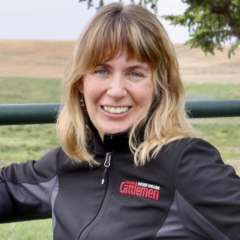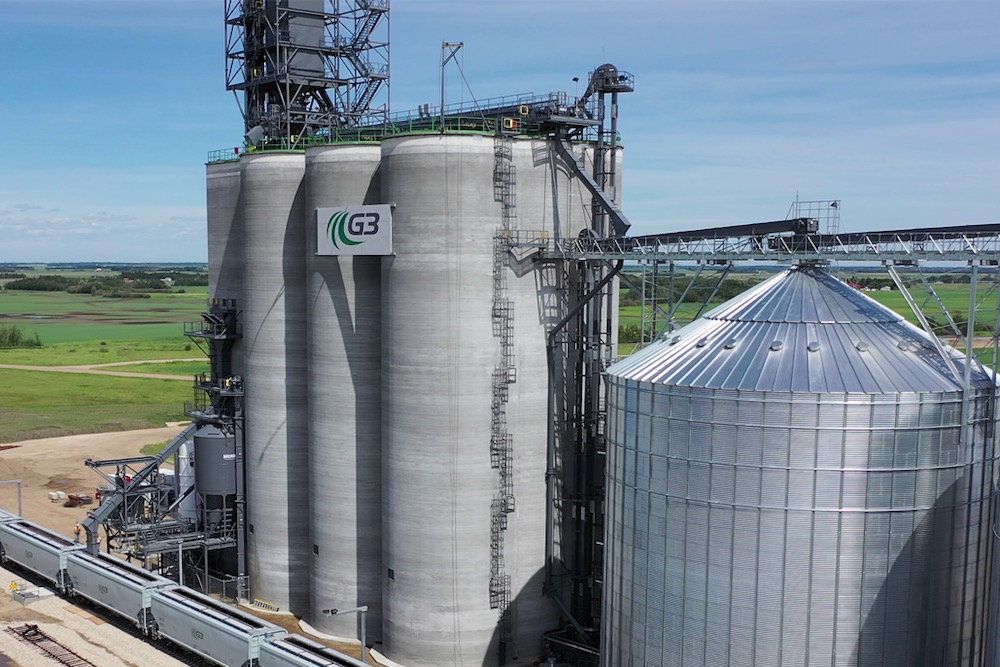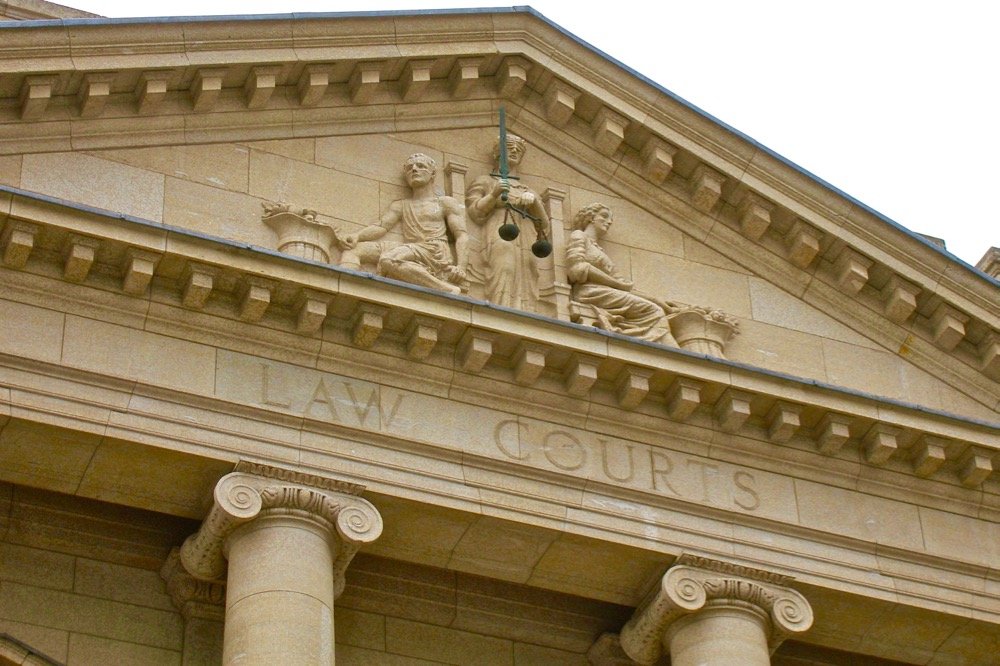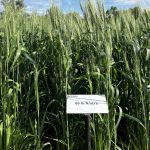Farmers of North America (FNA) executives are pleading for more time from the federal government to help farmers hammer out a deal to buy the former Canadian Wheat Board.
FNA has created a new organization, Genesis Grain and Fertilizer LP, to build a farmer-owned grain handling and fertilizer sales and distribution company. As of Tuesday, it had received non-binding “expressions of interest” for $45 million from farmer-investors. [Related story]
FNA has been on the town-hall meeting circuit drumming up farmer support for the deal in recent weeks. Spokesperson Bob Friesen told reporters Thursday the organization has faced questions on why the company chose to roll out the plan during harvest.
Read Also

U.S. grains: CBOT soybeans, corn, wheat fall in USDA data aftermath
Chicago grains took a dive on Friday, following a closely watched U.S. government crop report and the release of export data that could provide clues into Chinese buying.
While FNA was laying the groundwork for a farmer-owned grain company, he said, “we also suddenly realized that the privatization of the CWB was on an expedited timeline.”
The federal government’s plan calls for CWB to be fully privatized before August 2017 — but FNA officials cite a Winnipeg Free Press report last week which quotes CWB officials saying they’re working on a “much faster” privatization timeline than Ottawa’s expectation.
The same article by Free Press writer Martin Cash also cites “plenty of rumours” that major global grain handlers such as ADM and Louis Dreyfus are “close to making serious offers” on CWB.
FNA CEO James Mann told reporters that farmers need six weeks to two months to consider the company’s offering memorandum. Mann has been meeting with government officials in Ottawa to buy time.
Asked how talks have been going with federal government officials and CWB, Mann was hesitant to share details. But he said he was “very deeply concerned” that a decision would be made before farmers had time to consider the deal.
“I would say that I don’t have high hopes currently but we’re definitely doing everything we can to give farmers the time that they need to look at this,” Mann said.
Federal Agriculture Minister Gerry Ritz has been “strongly supportive of a farmer-owned CWB,” Mann added.
“There’s some issues of confidence whether farmers have the capacity or the will to invest. But if you don’t try, you will never know,” he said.
“Not to flip”
FNA put forth an offering memorandum on Oct. 10, hoping to entice farmer-investors to buy into the Genesis project. Under that offering, interested farmers can buy shares for $1,000 per unit, with a minimum buy-in of 10 units.
The offering, organized through Laurentian Bank Securities and in effect until Jan. 16, 2015, calls for a minimum total sale of 20,000 units up to a maximum of 380,000 units, for gross proceeds of $20 million to $380 million respectively.
Under the company’s proposed structure, farmer investors would hold most of Genesis’ class A shares. Genesis, in turn, would control a holding company, which in turn would own the proposed fertilizer company, and the proposed grain handling company, whether it’s CWB or not.
If Genesis’ play for CWB succeeds, FNA said it plans to continue rewarding farmers who deliver grain to the new organization with equity in CWB through a trust, which in turn would have a minority interest in CWB. CWB today pledges farmers $5 of equity per tonne.
“And we do have a provision in the offering memorandum, in the subscription agreement, that allows farmers to use grain inventory to secure their investment,” said Friesen.
The organization intends to build a grain handling system with or without the CWB. Farmer investors will be able to withdraw their money, or leave it in, if the bid to buy CWB fails.
FNA is also building a fertilizer plant near Belle Plaine, Sask. The organization hopes to tie together the grain handling and fertilizer distribution systems.
“It makes sense from an efficiency operation. And just as importantly, or more importantly, the efficiency of farmer capital, to be able to combine these ventures into a single operation entity at a single operating location,” Mann said.
The fertilizer project will go ahead regardless of the outcome of the CWB deal. Investors in the fertilizer project will not be obligated to invest in the grain handling project.
The federal government will not receive capital from CWB’s sale, Mann said. That money is to stay with the buyer, on the condition that it’s re-invested into CWB.
FNA has placed a $250 million valuation on CWB, based on the last available financials of 2012, said Derek Penner, chief financial officer of FNA’s sister organization, AgraCity. Penner told reporters it was difficult to give a good answer to questions on CWB’s current liabilities.
Mann said farmers have expressed concern that any infrastructure they build would be bought out by other companies down the road. To keep that from happening, FNA is selling shares to farmers only, Mann said. Shares can’t be bought by other entities down the road, he added.
“We’re not developing these projects to flip them,” Friesen said. “This is for the long-term benefit of the farmers that invest.”
A “farmer,” for the purpose of investing in Genesis, is anyone who’s ever filed an income tax return “reflecting farm income” — including retired farmers, Penner said — or any corporation controlled by one or more people who’ve ever filed such a tax return.
The proposal also allows for one or more “strategic investors” to buy separate minority interests in Genesis’ holding company, the proposed fertilizer business and a Genesis-controlled grain handler — again, whether it’s CWB or not.
No such investor has yet signed an agreement to buy into or help finance the project, FNA noted.
— Lisa Guenther is a field editor for Grainews at Livelong, Sask. Includes files from Dave Bedard of AGCanada.com.















